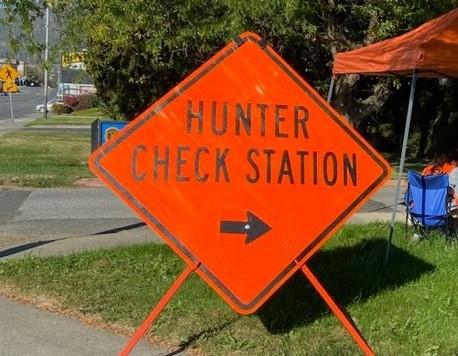News release Sept. 26, 2024
Media contact: Becky Elder, 360-701-7026
OLYMPIA – With fall hunting seasons underway across the United States and Canada, the Washington Department of Fish and Wildlife (WDFW) and Fish and Wildlife Police remind those hunting out of state to closely review Washington state rules regarding importation of harvested wildlife.
The importation rule, effective since July 2022, applies to all states and countries outside Washington — not just those with confirmed chronic wasting disease (CWD) cases — as well as to in-state hunters seeking to transport deer, elk, or moose from any of the 100 series Washington Game Management Unit to other parts of the state.
In an effort to prevent the spread of CWD, restrictions are in place under Washington Administrative Code (WAC) 220-413-030 on importing deer, elk, moose, or caribou into Washington if harvested outside the state. Meat from harvested game animals of these species must be deboned with all soft tissue removed from skulls, antlers, and hides. The following items are what is legally allowed to be transported into Washington:
- Meat deboned where it was harvested and imported as boned-out meat,
- Skulls and antlers (with velvet removed), antlers attached to the skull plate, or upper canine teeth (bugler, whistlers, ivories) from which all soft tissue has been removed,
- Hides or capes without heads attached,
- Tissue imported for use by a diagnostic or research laboratory, and
- Finished taxidermy mounts.
WDFW Police have shared tips on social media for how to abide by the import rules.
Violation of this rule is a gross misdemeanor that may lead to imported game meat being confiscated and/or penalties of up to a $5,000 fine under RCW 77.15.290.
"Our officers have already seized several animals this season that otherwise could have been lawfully imported to prevent further risk to our state,” said Deputy Chief Paul Golden. "We do not want to seize any more”.
With CWD confirmed in Spokane County this year, these rules are more important than ever in slowing its’ spread. CWD is a transmissible spongiform encephalopathy (TSE) that infects members of the cervid family — deer, elk, moose, and caribou. CWD has been documented in wild or captive cervids in 34 other states and four Canadian provinces.
Another way members of the public can help manage the spread of CWD is to refrain from feeding wildlife (which has been banned by WDFW in GMUs 124, 127, and 130) and report sick or dead deer, elk, or moose to WDFW. More information on CWD, including other rules related to it and how to have harvested cervids tested for the disease, is on the WDFW website.
The Washington Department of Fish and Wildlife works to preserve, protect, and perpetuate fish, wildlife and ecosystems while providing sustainable fish and wildlife recreational and commercial opportunities.
